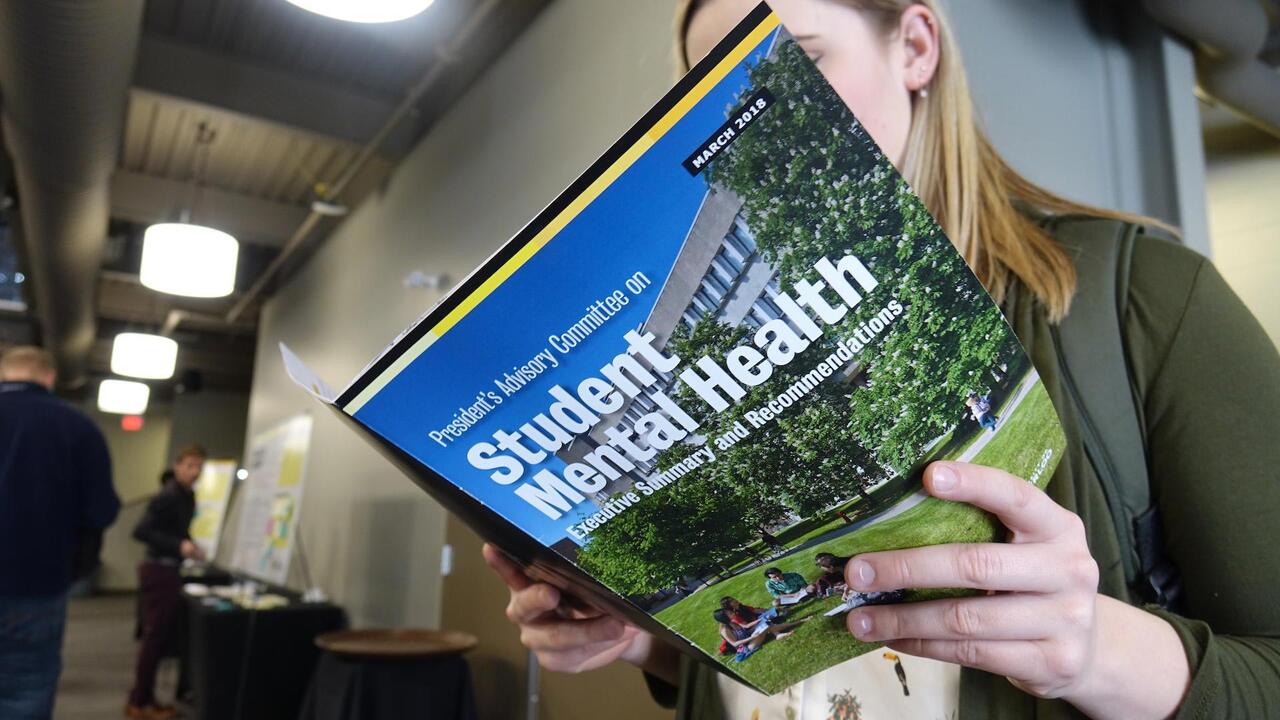
Mental health forum draws large crowd
Hundreds gathered to discuss recommendations to mental health initiatives.

Hundreds gathered to discuss recommendations to mental health initiatives.
By University Relations550 people attended the latest discussions on student mental health at the University of Waterloo.
Hosted in Federation Hall on Wednesday, March 14, hundreds of students, staff, faculty and alumni united to learn about the President’s Advisory Committee on Student Mental Health (PAC-SMH) report. The forum sought to provide attendees with an opportunity to learn more about the 36 recommendations included in the report, ask questions and provide feedback to members of the PAC-SMH.
“We are not alone in confronting the issues of mental health,” said President and Vice-Chancellor Feridun Hamdullahpur. “The struggles, specifically among youth, are present across our country and will continue to require a coordinated effort. To that end, we will endeavour to come together as a community to see what more we can do."
On Monday, University officials announced an investment of $1.2 million to increase mental health professionals on campus, bringing the total number to more than 70. Recommendations included: identifying early intervention strategies through educational workshops and/or digital applications, strengthening service levels so that on-campus services are prepared for a spectrum of mental health concerns, and offering one mental health/counselling staff member for every 1,000 students.
Audience questions posed pertained to balancing a culture of competition with a culture of wellness amongst students, mental health training for staff/faculty, and helping students transition from academics to co-op work terms.
"We're not suggesting the removal of stress at university," said PAC-SMH member and Director of Campus Wellness Walter Mittelstaedt. "But our academic panel is telling us quite strongly that we can address some of the more undue stress."
Following the forum, attendees were invited to engage with and provide feedback to committee members at six mental wellness stations. The stations each represented a set of recommendations made in the PAC-SMH’s report that included: campus policies and practices, fostering an inclusive and supportive campus culture, mental health awareness and communication, prevention and early intervention, and service access and delivery. Comment boxes at each station were also used to collect input.
“We are on the right track, we are at least having the conversation and we're starting the initiatives," said third-year chemical engineering student and Vice-President Academic of the Engineering Society Pat Duong. "Can we ensure that there is time between terms so that students can rest? Maybe that is something we can do from a scheduling perspective."
Selected recommendations will be rolled out as soon as possible, beginning with the increase of mental health professionals on campus and an implementation team led by John Hirdes, professor for the School of Public Health and Health Systems.
Watch the full forum here. Feedback on the forum can be provided through our online suggestion box.

Read more
Waterloo co-op student applies engineering and tech skills at Caivan to support purpose-built housing and build land-development expertise

Read more
Alum and founder Marc Lafleur shares how his entrepreneurship playbook has changed since selling his first company

Read more
How Doug Kavanagh’s software engineering degree laid the foundation for a thriving career in patient care
The University of Waterloo acknowledges that much of our work takes place on the traditional territory of the Neutral, Anishinaabeg, and Haudenosaunee peoples. Our main campus is situated on the Haldimand Tract, the land granted to the Six Nations that includes six miles on each side of the Grand River. Our active work toward reconciliation takes place across our campuses through research, learning, teaching, and community building, and is co-ordinated within the Office of Indigenous Relations.